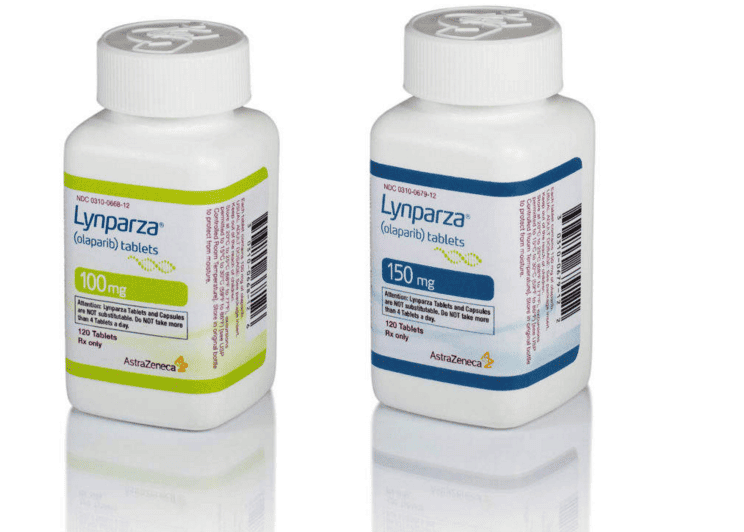
AstraZeneca and MSD have gained their third approval for Lynparza in Europe, getting the green light for its expanded use in patients with breast cancer.
Lynparza can now be used as a monotherapy in patients with germline BRCA1/2-mutations (gBRCAm), and who have human epidermal growth factor receptor 2 (HER2)-negative locally-advanced or metastatic breast cancer.
This adds to the drug’s existing two licensed uses in ovarian cancer (advanced disease and maintenance therapy) and will open it up to a much larger group of patients worldwide, following a similar approval in the US last year.
Lynparza is at the heart of a renaissance for AZ in oncology as well as being the cornerstone of its strategic alliance with Merck & Co/MSD, which co-markets the drug.
The new approval will help Lynparza maintain its growth and its status as out-and-out leader in the PARP inhibitor class, with EvaluatePharma forecasting it will hit annual revenues of $2.2bn by 2024.
There were an estimated 2.1m new cases of breast cancer worldwide last year, and around 30% of women diagnosed with early breast cancer will go on to develop advanced disease.
Inherited risk factors account for around 25% of all breast cancer cases, while mutations in the BRCA1, BRCA2, CHEK2, TP53 and PTENgenes account for around 5-10% of breast and ovarian cancer cases overall.
It is these patients with BRCA1/2 mutations who could benefit from the drug, though AstraZeneca and MSD will now have to work with healthcare systems to ensure routine adoption of diagnostic tests to identify patients.
Dave Fredrickson, AstraZeneca’s EVP of Oncology, said: “With this approval, Lynparza provides patients throughout the EU with a targeted and oral chemotherapy-free treatment option for a difficult-to-treat cancer. It also reinforces the importance of testing for biomarkers including BRCA, hormone receptor and HER2 expression, helping physicians to make the most informed treatment decisions for patients.”
The OlympiAD trial supported the approval, and showed Lynparza produced an improvement in progression-free survival compared to chemotherapy in patients with germline BRCA-mutated metastatic breast cancer.
The randomised, open label trial produced median progression-free survival improvement of 2.8 months (7.0 months for Lynparza vs. 4.2 months for chemotherapy). Patients taking Lynparza also experienced an objective response rate (ORR) of 52%, which was double the ORR for those in the chemotherapy arm (23%).
The data looks like a significant step forward in treatment, but remains relatively modest, and without overall survival data it is likely to face resistance from HTA bodies such as England’s NICE.
AstraZeneca and MSD are undoubtedly on a roll now with Lynparza, and have also recently published encouraging results from its use in prostate cancer, and the particularly hard to treat tumour, pancreatic cancer.
The partners also recently declared a further collaboration with diagnostics specialist firm Myriad. Its BRACAnalysis CDx diagnostic will be used to identify germline BRCA mutations in men who have metastatic castrate-resistant prostate (mCRPC) cancer and are enrolled in the phase 3 PROfound study.




